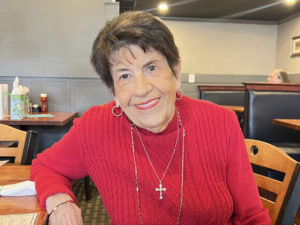Lexington, KY (May 21st, 2024) – In the heart of Appalachia, a culturally rich region hard-hit by the opioid epidemic, the Kentucky Access to Recovery Program (KATR) is making significant strides in supporting individuals in their recovery journey. Faculty at the University of Kentucky College of Social Work (CoSW) have played a crucial role by evaluating its impacts through rigorous research.
KATR, operating across several counties in Eastern Kentucky, provides essential services to those recovering from opioid addiction. Drs. Aubrey Jones and Aaron Brown, along with their colleage Dr. Jayme Walters (Utah State University), focused their research on assessing how well the program enhances access to these critical recovery services and supports. Their study, titled “Over the Hills and Through the Hollers: How One Program is Assisting Residents of Appalachia with Opioid Use Recovery,” offers vital insights into the effectiveness of such interventions. Their work is published in the Journal of Appalachian Health.
“Understanding the impact of KATR is essential for optimizing our approach to recovery support in Appalachia,” Dr. Jones noted. “Our research aims to provide evidence-based feedback that can refine and strengthen the program, supporting its initiative to meet the needs of those it serves.”
Their evaluation methods involved an analysis of the program’s service delivery mechanisms and their alignment with the unique cultural and logistical needs of the Appalachian community. This approach not only highlights the successes but also identifies potential areas for improvement.
“Each community has its intrinsic strengths and challenges,” Brown explained. “In Appalachia, the robust community spirit can be a powerful ally in recovery efforts. By aligning our strategies with local values and resources, we can enhance the effectiveness of our interventions.”
Their work alongside KATR efforts exemplifies the critical role of applied research in the field of social work. By closely examining the real-world impacts of recovery programs, researchers can provide invaluable feedback that can lead to more effective health interventions, tailored to the specific needs of targeted populations.
Their research contributes not just to local improvements in Appalachia but also offers a model for similar regions across the country grappling with the opioid crisis. Through this dedicated analysis, Jones and Brown help pave the way for more effective, culturally sensitive recovery programs that can be adapted and implemented in other contexts facing similar challenges.






